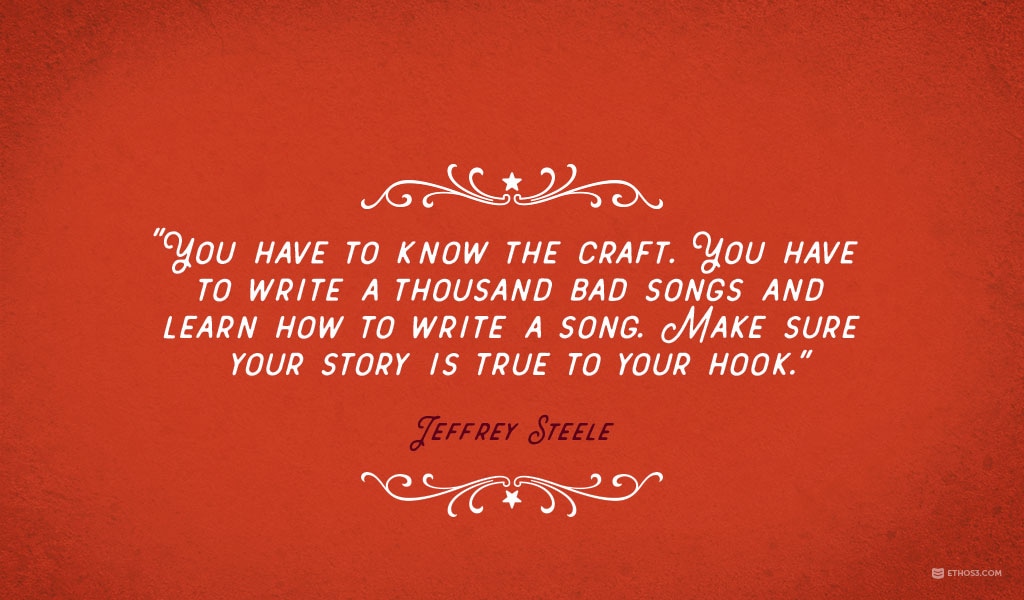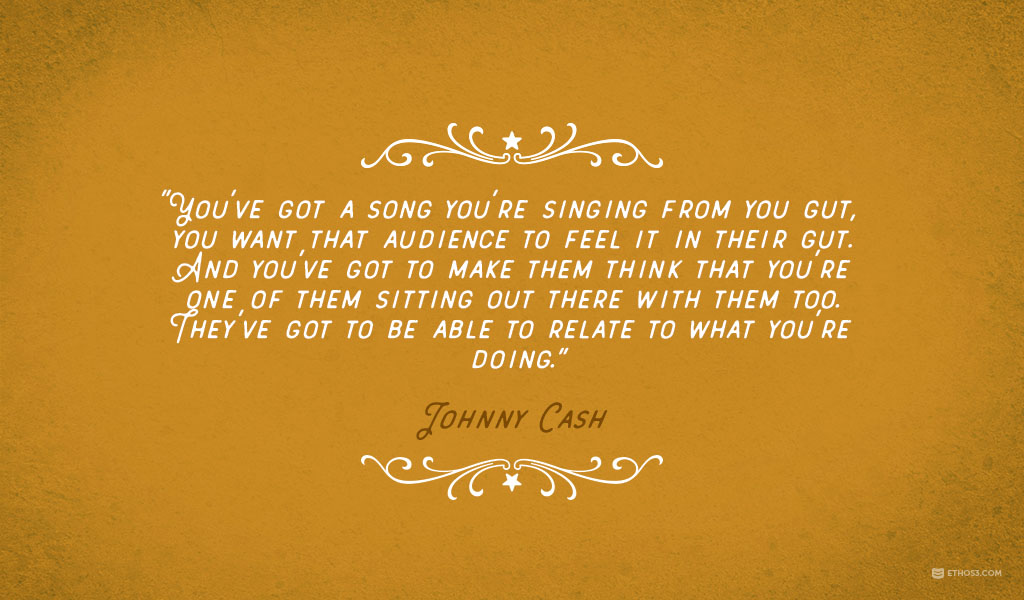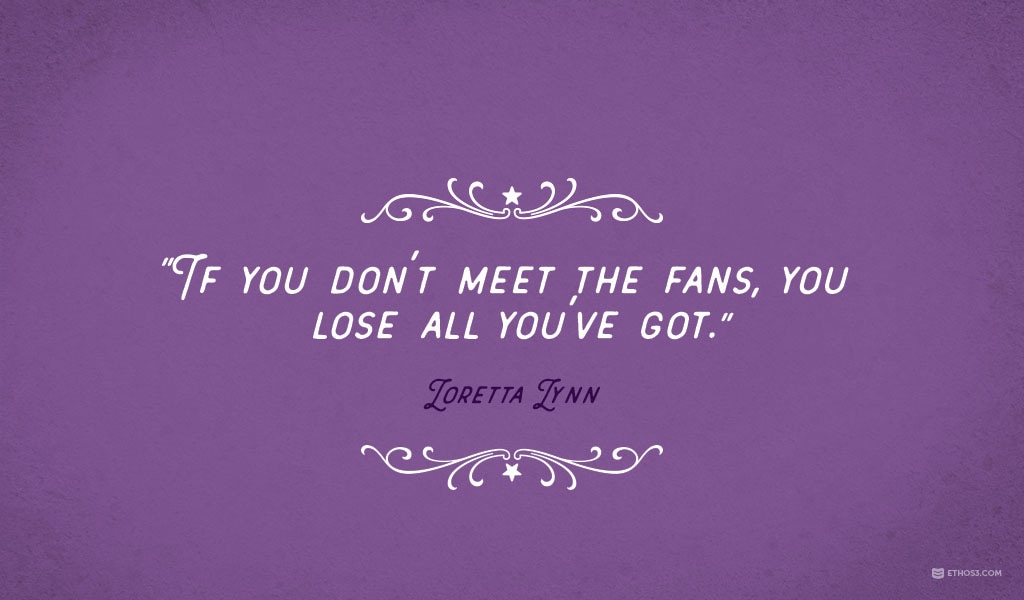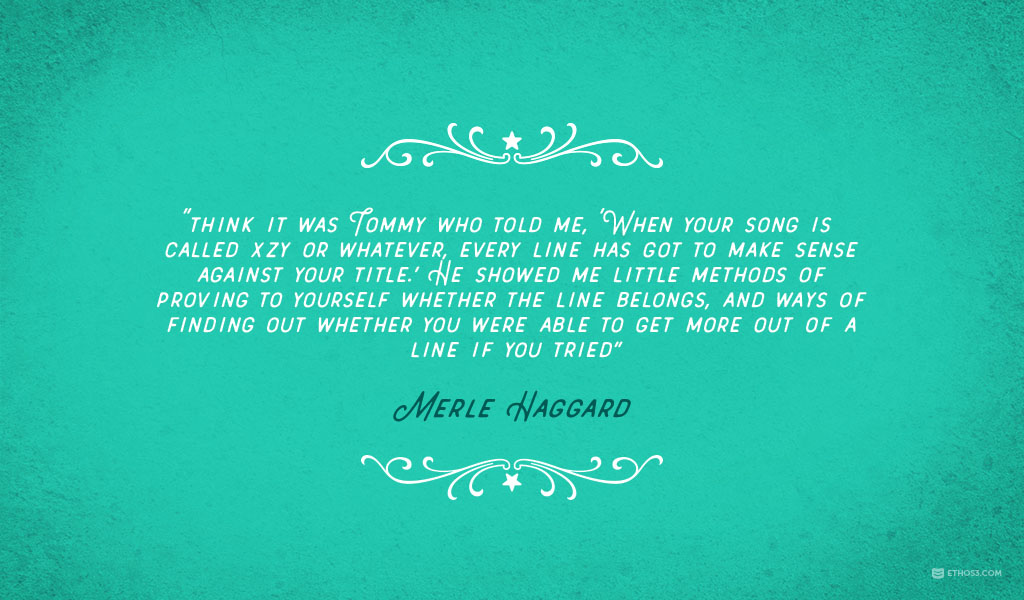Here I am. I’m sitting in my chair – just minutes from Music Row and a few miles from Broadway in Nashville, Tennessee. The city is country music’s Mecca. It’s where many of the industry’s most renowned singers and songwriters began their journeys to stardom. Hundreds of people flock to the Music City every day to start their own ventures and create their own unique experiences. And many more than that stop by on their way to somewhere else. They want to hear the authenticity, the hurt, the love that is country music’s trademark. And they want to hear it where it grew. The genre is known for it’s impeccable use of storytelling. As a presentation expert, I’ve gathered droves of presentation inspiration from successful country music songwriters.
Presentation Inspiration from Country Music Songwriters
1. “Never do it for the money.”
In 2013, Jeffrey Steele clinched his spot in the Nashville Songwriter Hall of Fame. Steele has collaborated with artists ranging from Montgomery Gentry and John Waite to Rascal Flatts and Tim McGraw. For the songwriter – who recently established an academy dedicated to teach his writing principles – creating lyrics with impact is not about making a profit. When a songwriter grabs their guitar, a pen, and sturdy notebook, the act is artistic and personal.

Your presentation is always, first and foremost, about your audience. But a compelling presentation will also come from a deeper place within the presenter.
2. “You want that audience to feel it in their gut.”
His coarse, harmonious voice first bellowed through the airwaves in 1955 when he teamed up with Marshall Grant and Luther Perkins – the Tennessee Two – on a track called “Cry, Cry, Cry.” Johnny Cash’s religious background, farming experience, and U.S. Air Force service influenced his songwriting – as evidenced by the gospel, blues, country-western sound in many of his songs. Beyond the sound, however, the themes of Cash’s music aligned with the daily lives and common feelings of his listeners.

Presenters should share personal stories that are also relatable to their audience members. By adding descriptive language to the storytelling, you will help your audience “feel it in their gut.”
3. “Songs are everywhere.”
From a young age, country music songwriter Steve Wariner was playing and performing pieces. Frequently compared to Glen Campbell, Wariner’s diverse skill set landed him in the 1981 Country Top Ten for his single “Your Memory.” His approach to finding inspiration is one that presenters should employ.

Songs are everywhere. And presentations are everywhere. More accurately, angles from which you can tackle presentation subject matter and concepts you can provide as evidence to your main points are everywhere. You have to search for them – both actively and passively. For example, actively conduct research on your presentation topic. In addition, passively listen as your department intern discusses information she studied in a recent class and how it impacted her. You never know when a conversation or experience can complement an argument you plan to make in a presentation.
4. “You can’t be halfway in this business.”
Loretta Lynn is credited with increasing the prominence of women artists in what was originally a genre dominated by men. The country-western singer and songwriter reflected her deep appreciation for the individuals who supported her dream in the following quote:

A presenter that adopts a grateful mindset demonstrates more buy-in for the message and displays more passion for the presentation. You can’t be halfway in your presentations because sooner or later, your audiences will notice. And the reaction will not be positive.
5. “Every line has got to make sense against your title.”
Merle Haggard was an outlaw through and through. With a hardcore country vibe, the singer and songwriter blended influences from blues, folk, and jazz to produce hits like “Swinging Doors,” “The Bottle Let Me Down,” and “Mama Tried.” Haggard’s songwriting could be divisive and political. In “Okie from Muskogee,” he relayed his view of the state of the American population during the latter part of the 1960s. At the time, the generation had more funds at their fingertips than previous generations. Through his criticism of society, Haggard garnered significant attention, but his song was not received positively by all. Despite the friction, his music, as a whole, resonated with many listeners across the country and world. He gleaned the advice highlighted below from a peer. It sums up the songwriting and presentation writing purpose in a few, short sentences.

Think about your own presentation titles. Does every slide in your presentation correspond to your presentation title? Is each sentence in your speaking script proceeding to a clearly-defined conclusion? Is there a reason you have strung certain words together on the screen and in your notes? Develop a structure for your presentations like Haggard created for his songs.
Your audiences may not be expecting much. Some may step into the venue thinking, “Oh, another PowerPoint presentation.” If you want to shatter their presentation paradigm, try some of the tactics used by country music songwriters. Be unapologetically authentic. Make your audience feel like they are in the story, not just hearing it. Believe that you can find material to share anywhere. Be a caring presenter. And write only to drive the narrative forward.
More Like This from the Ethos3 Archives:
Presentation Tips from Breaking Bad
The Public Speaking Prowess of Herbert Humphrey
